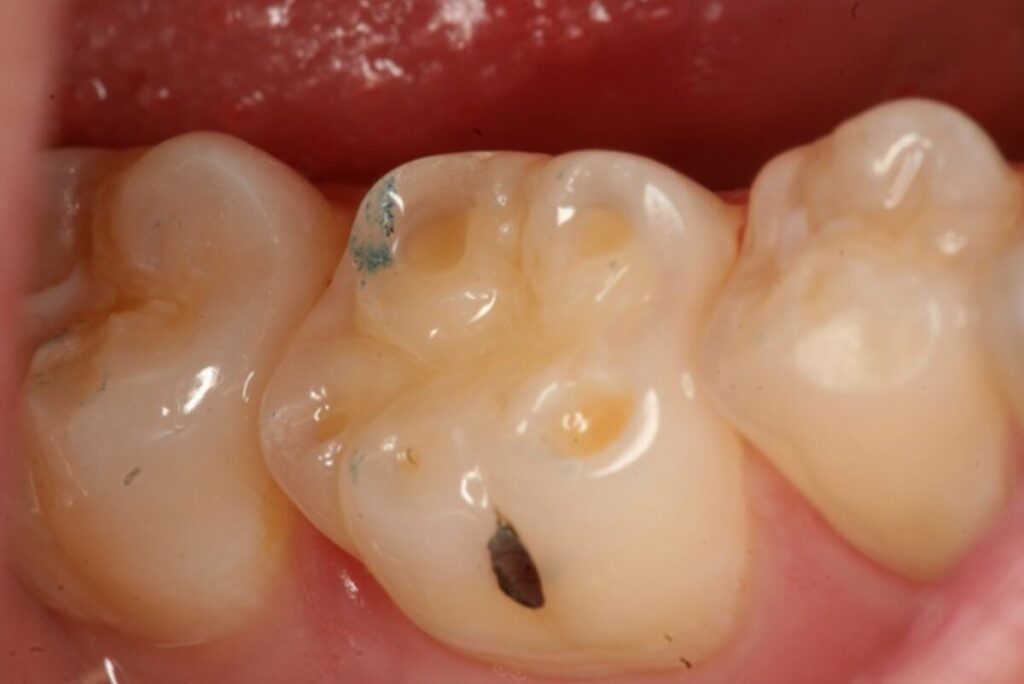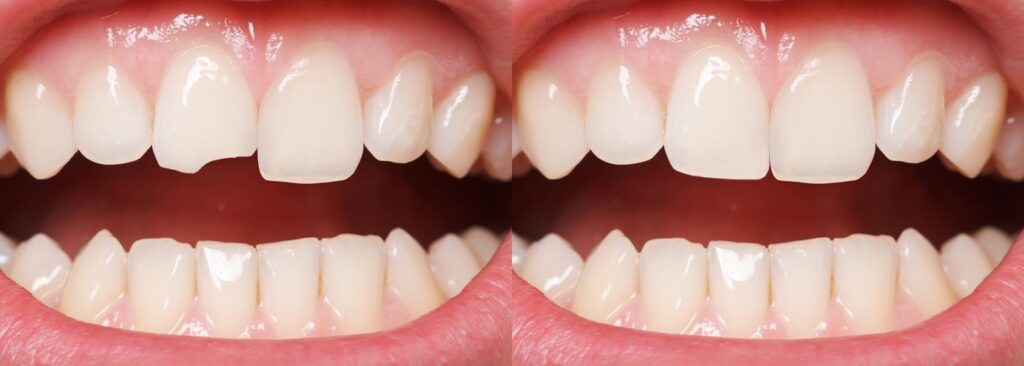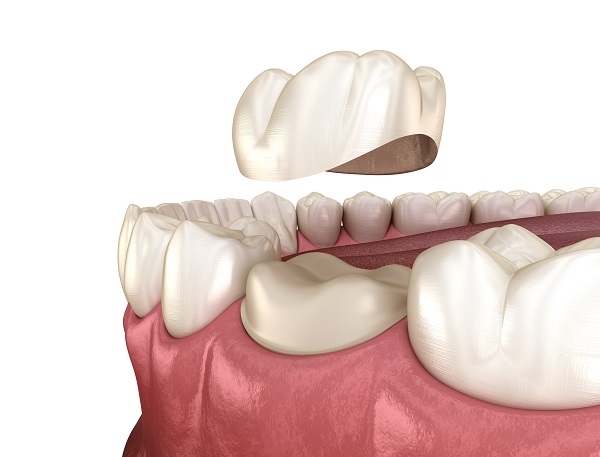
Have u recently notice small indentations or cups forming on the biting surfaces of your teeth? If so, you might be suffering from an uncommon dental condition known as tooth cupping
While tooth cupping can occur in anyone, it is not widely known or understood due to its low occurrence. Little is also known about its exact cause, though dental professionals have surmised that among several factors, acid erosion is the main reason behind tooth cupping.
In the rest of this article, we will take a deep dive into tooth cupping and explore the causes, symptoms, and treatments behind it, as well as offer tips for prevention. So, whether you’re experiencing tooth cupping or simply curious about this dental condition, keep reading to discover everything you need to know.
What Exactly Is Tooth Cupping?
Tooth cupping, also known as dental cupping, is a condition where small depression or circular holes form on the tooth enamel. The enamel is the outer covering of a tooth and protects the inner layers such as the dentin and the tooth pulp. In spite of being the strongest tissue in the human body, the enamel is also susceptible to erosion and damage.
When the enamel is being eroded, depressions in the form of small, circular ‘potholes’ form on the surface of the tooth. These cups can vary in size and shape and may appear on one or several teeth. While tooth cupping can affect anyone, statistic have shown that it is more commonly seen in middle-aged and older adults.
Dental professionals have identified several potential causes of tooth cupping, including erosion, genetics, age, tooth grinding (bruxism), as well as certain medical conditions. Tooth cupping may also be a side effect of certain medications or medical treatments.
Some symptoms of tooth cupping include visible indentations on the tooth, tooth sensitivity to a hot or cold stimuli (dentin hypersensitivity), pain while biting down. In some cases, tooth cupping may not cause any symptoms and can only be detected early through routine dental checkups.
Can Tooth Cupping Be Treated?
Yes, like most dental conditions, tooth cupping can be treated. The are several different treatment options available, each with its own pros and cons.
For mild cases of tooth cupping, teeth bonding is recommended. Also known as dental bonding, teeth bonding is a cosmetic dental procedure where a tooth-colored resin material is applied to improve the appearance of a damaged tooth. The procedure is commonly used to repair simple dental issues such as cracks, chips or depressions in a tooth; it is also used to improve the appearance of an eroded tooth and close the gap between teeth.

Teeth bonding is favored by many due to its affordable and straightforward procedure. However, it has a shorter lifespan than other treatment options and require frequent maintenance as it is more susceptible to staining and chipping.
If the tooth cupping is severe, dental crowning may be required. Dental crowning is a restoration procedure where a tooth-shaped cap is placed over a damaged tooth, covering it completely and preventing any further damage. The procedure is mostly used to repair teeth that are significantly decayed, cracked or eroded, and cannot be repaired with teeth bonding. Crowns is also used to cover dental implants, support dental bridges or protect teeth that have undergone root canal treatment. Depending on the budget and preference of the patient, dental crowns can be made with different materials including gold, ceramic, porcelain, resin, or a combination of these materials.

Dental crowning is preferred when there is severe tooth cupping as it can provide a long-lasting solution to restore a damaged tooth. Furthermore, crowning offers high customizability as each dental crown is custom-made to fit the size, shape, and color of the existing tooth. That said, the procedure is invasive, costly, and requires multiple visits to the dental clinic.
So what happens if you do not treat tooth cupping?
If left untreated, tooth cupping can lead to further tooth damage such as tooth decay, discoloration. There is also increased risk of gum disease including gingivitis and periodontitis. In cases where the dentist have deemed the tooth to be beyond repair, an extraction is required to prevent an infection from spreading to the rest of the teeth.
As such, it is important that you consult with a dentist early if you are experiencing symptoms of tooth cupping. Early treatment can prevent any further damage and dental complications that may arise due to tooth cupping.
How to Prevent Tooth Cupping?
To prevent tooth cupping, it is important that follow and maintain regular oral hygiene habits:
- Limit your consumption of acidic foods and drinks: Acidic foods and drinks such as citrus fruits, carbonated drinks, and fruit juices can erode tooth enamel over time. It’s important to limit your intake of these acidic foods and drinks and rinse your mouth with water after consuming them.
- Brush twice a day and floss daily: Brush your teeth twice a day with fluoride toothpaste to strengthen your tooth enamel and protect your tooth from erosion. Floss daily to remove plaque buildup and reduce the chances of tooth decay.
- Go for regular dental check-ups: Schedule a checkup with your dental clinic at least twice a year. Regular check-ups can help to detect and treat tooth cupping before it comes severe. Your dentist can also recommend appropriate preventive measures, such as fluoride treatments or dental sealants, to protect your teeth.
- Treat underlying medical conditions.:Certain medical conditions, such as GERD or bulimia, can contribute to tooth erosion and cause tooth cupping. It is important to address the condition and receive appropriate medical treatment to prevent further damage to your teeth.
By following these preventative measures, you can help prevent tooth cupping or erosion and maintain good dental health.
You may be interested in: Does Flossing Actually Whiten Your Teeth?
Takeaway
To summarise, tooth cupping can be a serious dental issue that can lead to a variety of problems such as increased tooth sensitivity, increased risk of gum diseases and in some cases, complete tooth loss.
However, there are several preventative measures that you can take to avoid tooth cupping. These include limiting your consumption of acidic foods and drinks, maintaining good oral hygiene scheduling regular dental check-ups, and treating underlying medical conditions.
If you suspect that you are experiencing tooth cupping, it is important to schedule an appointment with your dentist as soon as possible. Early detection and treatment can help prevent further damage and save your teeth.







